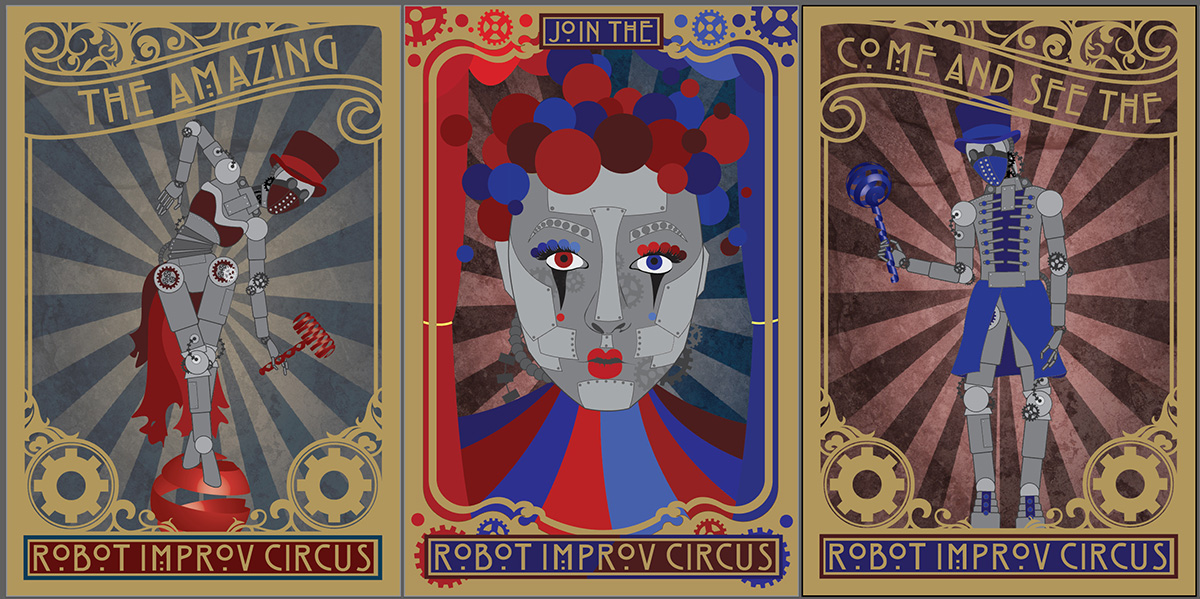Concept
The Robot Improv Circus is a VR installation where people can play the Props game from improv theatre in real-time with virtual characters, i.e. take turns to perform open-ended embodied improvisation with a virtual stage partner, pretending that the given unfamiliar props are real-world objects and using them to act out humorous vignettes. The installation places the user on the main stage of a robot improv circus where the user, their stage partner, and the audience are all humanoid robots. Points are awarded to each player (human and virtual) for their contributed actions.
This research is part of an initial effort to create virtual characters that can be improvisational partners with people in the challenging problem domain of open-ended embodied improvisation. Enabling virtual characters to perform open-ended embodied narrative improvisation with people in real-time requires addressing two main challenges: 1) the knowledge-authoring bottleneck and 2) improvisational decision-making in open-ended decision spaces. LuminAI (link) explored interactive learning of gestural knowledge as a solution to the knowledge-authoring bottleneck in order to perform open-ended proto-narrative improvisation. The Robot Improv Circus focuses on the challenge of decision-making in open-ended decision spaces using the embodied knowledge that could be learned interactively in installations such as LuminAI.
Virtual characters in the Robot Improv Circus are controlled by the CARNIVAL (Creative ARc Negotiating Improvisational Virtual Agent pLatform) architecture. The architecture is constantly evaluating the actions it sees users do and the actions that it is considering along the dimensions of novelty, surprise/unexpectedness, and value/quality. It then chooses actions to try and follow a designer-specified arc in this space of novelty, surprise, and value. Providing the designer of the installation a measure of controlled progression along which to modulate the user’s experience.
Installations
- TechRec at Georgia Tech Student Center – July 23, 24, & 27, 2018.
- The Biltmore – September 10 – 14, 2018.
Media

Publications
- Jacob, M., and Magerko, B. (2018). Creative Arcs in Improvised Human-Computer Embodied Performances. In Proceedings of Foundations of Digital Games (FDG ’18). (pdf)
- Jacob, M., Chawla, P., Douglas, L., He, Z., Lee, J., Sawant, T., and Magerko, B. (2018). Affordance-based Generation of Pretend Object Interaction Variants For Human-Computer Improvisational Theater. To Appear In Proceedings of International Conference on Computational Creativity (ICCC ’19). (pdf)
